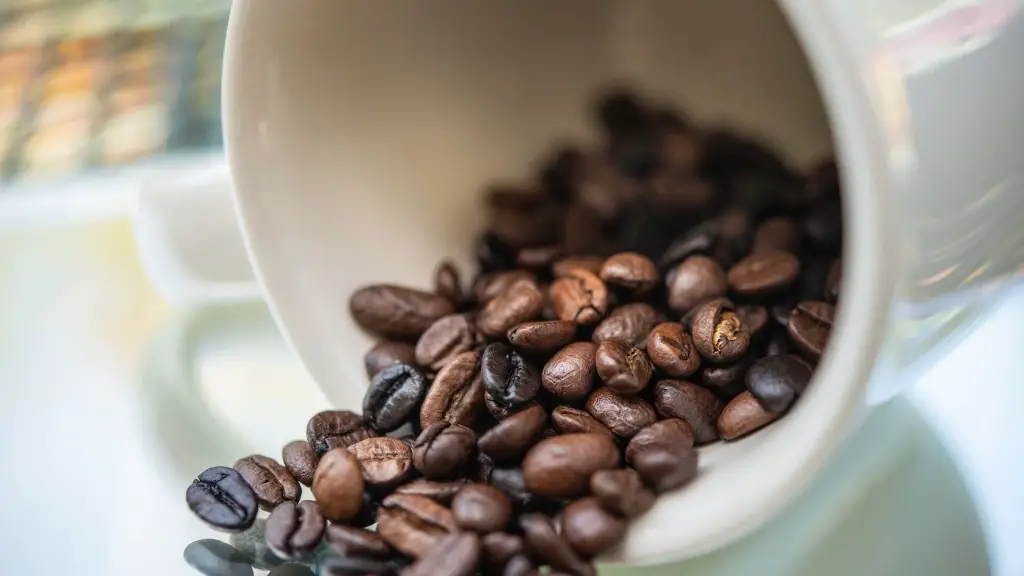Coffee, Caffeine and High Blood Pressure
Coffee is one of the most popular drinks around the world and it plays an essential role in people’s daily lives. Many studies have been carried out to examine the effects of coffee, caffeine and high blood pressure. This article will explore the results of these studies and offer insight into how drinking coffee may affect blood pressure.
Does Coffee Cause High Blood Pressure?
The short answer is no, coffee is not known to cause high blood pressure, although it can increase blood pressure temporarily. High blood pressure is a long-term medical condition that is usually caused by other factors such as a poor diet, smoking, drinking alcohol and lack of physical activity.
However, drinking too much coffee could potentially raise your blood pressure temporarily. This happens when the caffeine in coffee causes your nervous system to release more adrenaline which in turn increases your heart rate and blood pressure. Long-term exposure to caffeine has also been linked to elevated blood pressure, but the research is not conclusive.
Caffeine and Blood Pressure
Caffeine is present in many different drinks, including coffee, tea, soft drinks and energy drinks. Studies have found that consuming a large amount of caffeine can increase a person’s blood pressure by up to 10 points. The increase usually subsides after a few hours, but people with hypertension may be more affected.
Regular drinkers of high-caffeine beverages should be aware of the potential effects on their blood pressure. Some experts suggest limiting the amount of caffeine you consume, especially if you already have high blood pressure. Regular caffeine users should also watch out for withdrawal symptoms if they suddenly stop drinking coffee or other caffeinated beverages.
Does Decaffeinated Coffee Have An Effect?
Decaffeinated coffee does not contain any caffeine, so it does not have the same effect on blood pressure as regular coffee. Studies have found that drinking decaffeinated coffee does not have a significant effect on blood pressure and is generally safer for people with hypertension to consume.
Decaffeinated coffee still contains some caffeine, so it is important to keep an eye on the amount you drink in order to avoid potential side effects. Some experts suggest limiting yourself to a maximum of three cups of decaf coffee per day in order to remain safe.
How Can I Lower My Blood Pressure?
High blood pressure is a very serious condition and should be taken seriously. If you already have high blood pressure, there are some simple lifestyle changes you can make in order to lower your blood pressure and reduce your risk of heart disease.
Eating a healthy diet, exercising regularly, managing stress and avoiding smoking are all effective ways to reduce your risk of developing hypertension or exacerbating the condition. Additionally, limiting your intake of caffeinated beverages, including coffee, may help to reduce your blood pressure.
Moderation is Key
Drinking coffee in moderation is generally safe for most people. Moderate consumption may even have some benefits, such as improved alertness and memory. However, people with hypertension should be aware that too much coffee may raise their blood pressure temporarily.
If you already have high blood pressure, then limiting your coffee intake or switching to decaffeinated coffee may be beneficial. However, it is important to consult your doctor before making any changes to your diet or lifestyle.
Nutritional Value of Coffee
It is not just about the caffeine content when it comes to the health benefits of coffee. Coffee contains many beneficial compounds, such as chlorogenic acid and cafestrol, which can have positive effects on health. Coffee is also a good source of antioxidants, which helps protect the body from disease.
So, while drinking too much coffee can be detrimental to people with high blood pressure, moderate consumption can provide many health benefits. Additionally, there are many ways to make coffee healthier, such as adding skimmed milk, sugar substitutes and spices like cinnamon.
Coffee and Caffeine Alternative
Coffee is not the only beverage that contains caffeine. There are a wide range of alternative caffeinated drinks available, such as tea, energy drinks, chocolate and even soda. Many of these beverages are not as high in caffeine as coffee, so they may be a better option for those who are sensitive to caffeine.
In addition to these caffeinated beverages, there are also many non-caffeinated alternatives, such as herbal teas, fruit and vegetable juices and smoothies. These are all healthier alternatives to coffee, and contain vitamins and minerals that can be beneficial to your health.
Coffee and High Blood Pressure: The Takeaway
Overall, it is important to remember that the occasional cup of coffee does not have to be avoided completely. In fact, there are many potential health benefits associated with moderate coffee consumption. However, if you have high blood pressure or are sensitive to caffeine, then it is important to be aware of the potential effects of drinking too much coffee.
The best advice is to always drink in moderation, and to choose healthy alternatives to coffee, such as herbal teas, fruit and vegetable juices and smoothies. If you would like to continue drinking coffee, then consider switching to decaf or adding a scoop of skimmed milk.
Benefits of Coffee on Mental Health
Coffee also has health benefits reaching beyond your physical health; research suggests that coffee may be good for your mental health as well. Studies have indicated that coffee can improve cognitive function, reduce stress and fight fatigue. It has also been credited with reducing the risk of developing depression.
To enjoy the cognitive benefits of coffee, however, it is important to understand your own tolerance for caffeine. Too much caffeine can cause anxiety and make it harder to concentrate, so it is important to find an appropriate balance. Additionally, some people are more sensitive to the effects of caffeine than others, so it is important to listen to your body.
Risks of Drinking Excess Coffee
Although moderate coffee consumption is generally safe for most people, drinking too much can have negative health effects. Consuming more than four cups a day may increase the risk of heart disease, insomnia, anxiety, and other health issues. Additionally, there are some people who may be more sensitive to the effects of coffee, such as pregnant women and people with hypertension.
So, while coffee can have health benefits, it is important to consider the potential risks of consuming too much. If you already have high blood pressure, then it may be best to limit your coffee intake or switch to a decaffeinated alternative.
Is Coffee Addictive?
Some people believe that coffee can be addictive, with some becoming dependent on it for their daily dose of caffeine. However, the reality is that coffee is not considered to be an addictive substance. While regular coffee drinkers may experience withdrawal symptoms when they suddenly stop drinking coffee, the symptoms are usually mild and can easily be managed.
So, if you are worried about becoming addicted to coffee, then you may find that it is easier to limit yourself than to quit completely. Slowly reducing your intake is a good way to kick the habit, as it will help to reduce any withdrawal symptoms.
Can Coffee be Overcooked?
Although it is easy to think of it as a simple drink, coffee can actually be an art form. Making the perfect cup of coffee requires skill, knowledge and the right equipment. One of the most important things to get right is the temperature of the water. Water that is too hot can lead to a burnt or bitter taste, whilst too cold water can lead to a weak and flavorless cup.
To make the perfect cup of coffee, the water should be heated to around 195-205°F. It is also important to use the right grind size, as too coarse or too fine of a grind can ruin the taste. Additionally, it is important to use a timer when pouring the water over the grinds, as this will help to ensure that the correct ratio of coffee to water is used.





